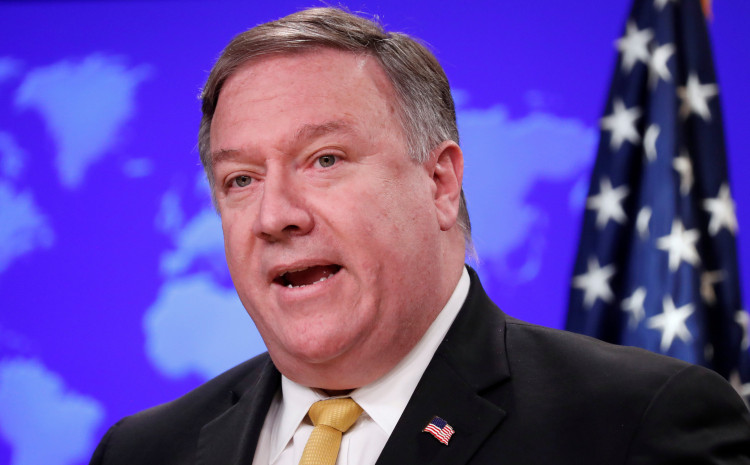Secretary of State Michael Pompeo announced on Oct. 3 that the United States is terminating the 1955 Treaty of Amity with Iran. His announcement came after the International Court of Justice ruled Washington to ease sanctions on Iran based on humanitarian grounds.
The 1955 Treaty of Amity is an agreement signed by both the United States and Iran during the pre-Iranian Revolution. The treaty ensures that favorable economic and consular ties between the two countries are upheld all the time.
In a press conference on Wednesday, Pompeo explained that the termination of the treaty was needed to address Iran's "meritless case" in ICJ that Washington's withdrawal from the 2015 Iran Nuclear Deal violated the Treaty of Amity.
Pompeo said that Iran had only wanted to challenge U.S. decision to longer participate in the deal to avoid the sanctions it re-imposed against Tehran. This move showed that Iran is attempting to interfere with the sovereign rights of the United States to seek legitimate actions in upholding its national security, Pompeo told the press. He stated that Iran has a history of terrorism and has been continuing its ballistic missile activity. These actions contradicted its claim that the United States was the one that violated the 1955 treaty, Pompeo asserted.
Pompeo also accused Iran of abusing the ICJ for its political and propaganda purposes and asserted that Tehran remains noncompliant with its international obligations under the Treaty on the Nonproliferation of Nuclear Weapons.
At the center of the issue is ICJ's ruling that the United States should lift sanctions on Iran, particularly those sanctions that prevent the exports to Iran of humanitarian goods and products such as medicine, medical devices, agricultural products, food, and equipment for the safety of civil aviation.
To this, Pompeo explained that despite the Iranian sanctions in effect, the United States was clear that sanctions exclude authorizations, and licensing policies for humanitarian-related transactions and safety of flight will remain in effect. Pompeo said that Washington has actively addressed these issues even without having to seek for an accord before the ICJ.
Pompeo highlighted that during the decision-making stage, the Trump administration has actively engaged the U.S. Department of the Treasury to ensure that its decisions to withdraw from the 2015 Iran nuclear deal will not impact humanitarian-related services.
The secretary of state emphasized that its sanctions against Iran were a matter of national security and ICJ, therefore, has no jurisdiction to issue an order related to the matter.
Separately, National Security Adviser John Bolton said the United States would withdraw from the Vienna Convention on Diplomatic Relations following the ruling made by the ICJ. Moving forward, the Trump administration will also review all international agreements that may still make the United States bounded to jurisdiction dispute resolution in the ICJ.






